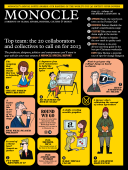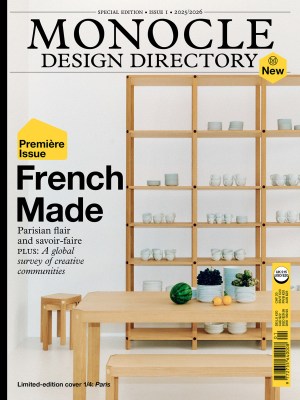
Issue 59
Top team: the 20 collaborators and collectives to call on for 2013. A Monocle special report on the producers, designers, politicos and entrepreneurs you’ll want to spar with for your next venture.
In This Issue
Oops! No content was found.
Looks like we no longer have content for the page you're on. Perhaps try a search?
Return Home

